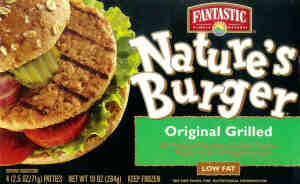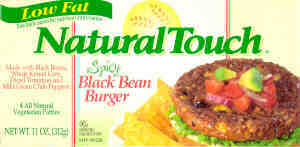 BENDING OVER FOR THE BANK
BENDING OVER FOR THE BANK
Successfully dodging issues of dictatorial decision making and whether we coop utopians could afford union labor, the General Meeting, despite last-minute cries of conscience, overwhelmingly approved the preliminary budget for the Building Next Door, which was purchased 17 months ago. On one hand, around $2 million of bidding, bank loans, and construction will finally move forward. On the other hand, it adds risks ranging from higher shelf-price markups to liquidation of the coop if the bank fears for its loan.
First we discussed creating committees to battle genetically modified (GM) food. The Environmental Committee member who proposed the new groups emphasized that agribusiness was "attempt[ing] to seize the world's food supply for their personal profit." One committee would propagandize Brooklyn. The other would label coop products suspected of containing GM contamination. Products will be indicted if their manufacturers fail to answer the labeling committee's questions, or "answer evasively." Suspect products are those using soy, rapeseed (canola), potatoes, tomatoes, and corn. The labeling committee would start slowly, and would require subsequent GM (General Meeting, not genetically modified) approval to continue.
Most speakers strongly opposed GM. One speaker said that "studies in England" showed thickening stomach walls, shrinking brain stems, and cancers. Other speakers invoked lessons from history, reminding us that decades ago it was fun to kill insects with pesticides, and now we know that insects are good and pesticides are bad. GM must be halted "before the planet's systems are irreparably wrecked," said one. "Let's eat for health and not be guinea pigs in a new experiment," said another.
Only one speaker defended GM, describing the GM oil-eating bacteria that helped clean the 1989 Exxon Valdez spill, but he exaggerated the bacteria's role. Another speaker said that since the evidence was mixed, the coop should preserve a choice between GM and non-GM food.
Grandma, of the cantankerous Florida Grandparents, announced that she knew nothing about the issue, but that "every GM I go to, there's a new committee!" She was applauded, but the propaganda committee was approved in a vote of 85-6, with 8 abstentions. The labeling committee was approved 101-1, with 2 abstentions.
But most were here to vote not on genetic modification, but on the Building Next Door (BND) budget process, which required coop approval of National Cooperative Bank terms before we could apply for a loan to rebuild the property. The BND had been bought in 1999 to help expand the miserably crowded coop, but it needs full renovation.
Two members of the BND's Mouseketeer-like Renovation Committee -- Cubby from its Finance subcommittee and Tommy from its construction subcommittee -- spoke at length to the General Meerting, which had at its previous session agonized over whether we could afford higher-priced union contractors. At this new meeting, I had expected that pro-BND members who were too pro-union would rise in force against a nonunion plan. But the Renovation Committee was clever, now offering two possible budget models: one affordable 25% union, 75% nonunion plan; and a 100% union plan with a financial poison pill.
 Cubby presented the two budget options, and Tommy described the bidding process. Tommy told how hard it had been to get quotes for union labor since union contractors ignored the committee's request for quotes.
Cubby presented the two budget options, and Tommy described the bidding process. Tommy told how hard it had been to get quotes for union labor since union contractors ignored the committee's request for quotes.
 Most GM speakers spurn the microphone, and half-shout half effectively. Cubby used the mike to speak gently, soothingly, and at great length to the restless crowd. The 25% union budget would cost around $2 million, he said, and the 100% union budget almost $600,000 more. The bank loan would be for $1.7 million either way. From where could come the difference? Cubby said that either the coop's price markup would have to be briefly raised 7% (it's now 20%), or the mandatory member "investment" (once called a deposit till the coop decided that sounded too negative) would have to be briefly doubled from $100 to $200.
Most GM speakers spurn the microphone, and half-shout half effectively. Cubby used the mike to speak gently, soothingly, and at great length to the restless crowd. The 25% union budget would cost around $2 million, he said, and the 100% union budget almost $600,000 more. The bank loan would be for $1.7 million either way. From where could come the difference? Cubby said that either the coop's price markup would have to be briefly raised 7% (it's now 20%), or the mandatory member "investment" (once called a deposit till the coop decided that sounded too negative) would have to be briefly doubled from $100 to $200.
Cubby said that the Renovation Committee recommended the 25% union budget because it didn't feel that additional expense was easily affordable, and that higher costs would violate their mandate not to increase the price markup.
Even the cheaper budget, said Cubby, included an unusual risk. Although the proposed five-year fiscal plan included a comfortable "cash cushion" to pay for expensive construction change orders -- "You have to make sure your piggy bank is full," said Cubby -- it also included a third-year projected dip below the minimum debt service coverage ratio (DSCR). The bank requires the DSCR, which is a calculation to ensure that the coop's net income is enough to pay back the loan. If the coop dips below that minimum in that third year, the year in which the coop occupies the unfinished BND while at the same time starting to pay back the bank loan -- or if the DSCR dips below the bank minimum in any year of the loan, never mind one year as planned -- the bank, to protect its loan, could take over the coop, and even liquidate it to recover its assets.
Would that happen? Cubby couldn't guarantee that it wouldn't, but he said that the bank would respect our "fair" cash cushion enough not to liquidate us. Top coordinator Joe Holtz, calling himself the main liaison with the bank officers, said that this bank has a long history with us, and that they're impressed by our steady management over several years. "All in all, they said don't worry, so we shouldn't worry. It's hard to say that because they need that kind of pull-the-plug language -- they're a bank."
Challenges to the committee's projection came almost entirely from members who wanted more union involvement. One called the coop was a "social mission." Some questioned the need to raise the price markup or the member deposits. Several asked how real the data was. One asked to see the contractors' bids, said it was too early to decide, offered to locate some union contractors himself, and suggested that we rethink our mandate against raising the markup if we want to live up to our ethical principles.
 Tommy pointed out that the coop couldn't spill bid information during negotiations, and that bids are freely discussed in Renovation Committee meetings, which any coop member may attend. (None do.) Cubby said that extra funds for union wages had to come from somewhere. He also said that we had already received two bank-term extensions, and that we needed to act promptly to avoid bank delays during the summer doldrums. If we failed to approve the bank rules this night, he said, we'd need to convene an extra meeting in several weeks. The bank needs to see coop commitment or it won't support us, he said. "You can talk about issues and projects -- this is a natural reaction to the pressure of decision making -- but we must act."
Tommy pointed out that the coop couldn't spill bid information during negotiations, and that bids are freely discussed in Renovation Committee meetings, which any coop member may attend. (None do.) Cubby said that extra funds for union wages had to come from somewhere. He also said that we had already received two bank-term extensions, and that we needed to act promptly to avoid bank delays during the summer doldrums. If we failed to approve the bank rules this night, he said, we'd need to convene an extra meeting in several weeks. The bank needs to see coop commitment or it won't support us, he said. "You can talk about issues and projects -- this is a natural reaction to the pressure of decision making -- but we must act."
Some advocates for more union labor depicted union workers as being well-paid people "struggling for progressive change," with their safety and rights protected, while nonunion workers earned only minimum wage, couldn't retire at 65, couldn't take their children to doctors, and undercut prevailing wages for all. Did the coop want to save money on the backs of an oppressed 75%-nonunion construction crew? some asked. We can afford higher costs for a while, said others. What quality work would come from minimum-wage workers? asked one.
Tommy replied that nonunion construction wages were actually high. "I'd be extremely surprised if we'd find any minimum-wage workers on this project," he said, though he added that he couldn't guarantee that. "A union contractor would guarantee that!" shouted many in the audience. Tommy admitted that, but said he stood by his 25 years in construction. Another member who said he was in construction confirmed that reputable contractors would hire reputable, well-paid workers, and that if anybody really wanted to spend an extra $600,000 on workers, let's spend it on our "woefully underpaid staff," getting huge applause.
Former rebel director Paul Sheridan complained that the bank terms didn't address unionization, and that it specifically granted Holtz, Eakin, and coop president Eric Schneider total control over project administration. "No offense to my friend Joe Holtz," he said, patting an unflinching Holtz on the knee, "but I wouldn't empower my own mother" with such responsibility. Joe replied that the bank terms could be renegotiated, but not this night. The cards are stacked in favor of the bank, he said, because that's what banks do.
 The last bout of speakers had obviously waited to close the discussion. A couple of nonunion advocates spoke, followed by a pro-union member who nonetheless reminded us that the vote was about the Building Next Door, not about unionization. Board member Doyle Warren complained that his Project Development Team, which had been axed by Holtz, had in late 1998 achieved similar results to the successor Renovation Committee. He also condemned the staff for what he called $300,000 in wasted spending since that time, including buying the useless scanner checkout counters, which he said the PDT's contractor had "begged, pleaded" the coop not to install until the new building was ready. (The $120,000 scanner counters have been giant paperweights since December 1998 because of software problems, not because of their installation location.) "I cannot vote for this," he said, making me wonder whether he meant as a member, or as a board member empowered to validate or veto General Meeting decisions.
The last bout of speakers had obviously waited to close the discussion. A couple of nonunion advocates spoke, followed by a pro-union member who nonetheless reminded us that the vote was about the Building Next Door, not about unionization. Board member Doyle Warren complained that his Project Development Team, which had been axed by Holtz, had in late 1998 achieved similar results to the successor Renovation Committee. He also condemned the staff for what he called $300,000 in wasted spending since that time, including buying the useless scanner checkout counters, which he said the PDT's contractor had "begged, pleaded" the coop not to install until the new building was ready. (The $120,000 scanner counters have been giant paperweights since December 1998 because of software problems, not because of their installation location.) "I cannot vote for this," he said, making me wonder whether he meant as a member, or as a board member empowered to validate or veto General Meeting decisions.
After feuding for several minutes over whether to extend the meeting 15 minutes -- a motion that failed 39-45, with 9 abstentions -- we were ready to vote on the bank terms. But before the motion got onto the floor, the coop secretary, Riana McLoughlin, interrupted to give a long, impassioned speech about how we weren't ready to vote, having discussed unionism but not the budgetary and corporate aspects. If we didn't extend the meeting, further discussion would require tabling the motion and calling an extra meeting. "No motion on the floor!" shouted someone who didn't want her speaking out of turn; "Table it!" shouted someone else.
Incredibly, the chair, rather than ignoring the outburst threatening to negate all the earlier discussion, asked "Does anyone else feel strongly about that?" The crowd hubbub got louder. The Renovation Committee huddle grew as more of its members joined it. The chair committee formed its own huddle, which then merged with the Renovation Committee's huddle. "We're going to come back!" said a cochair. "What?" cried some, fearing an additional meeting. Back to this meeting, the cochair clarified.
The chair announced that we would vote on tabling this proposal to a later, special meeting, and that if that vote failed, we would vote on the proposal. But a former chair yelled "Point of order!" and said that a proposal had to be on the floor before a motion to table it. "You should know; we wrote the rules," he said.
 The chair conceded the point, so the Renovation Committee's Darlene read the proposal, laughing lightly now and then. Sheridan offered a friendly amendment to empower any current director instead of just Holtz, Eakin, and Schneider; Darlene rejected that as unfriendly. Electromagnetic Israel asked whether the bank terms were legal; the chair said that wasn't an issue. Grandma pleaded for us to start voting. "My God, we'll be here all night!" she wailed. The chair asked her not to shout. "Then run the meeting properly!" shouted Grandpa.
The chair conceded the point, so the Renovation Committee's Darlene read the proposal, laughing lightly now and then. Sheridan offered a friendly amendment to empower any current director instead of just Holtz, Eakin, and Schneider; Darlene rejected that as unfriendly. Electromagnetic Israel asked whether the bank terms were legal; the chair said that wasn't an issue. Grandma pleaded for us to start voting. "My God, we'll be here all night!" she wailed. The chair asked her not to shout. "Then run the meeting properly!" shouted Grandpa.
After brief discussion -- which included a strained Cubby warning us that we couldn't unilaterally alter these terms, that no other bank would give us these terms, and that if we rejected them, we could risk losing the loan entirely -- we voted on Sheridan's amendment. Only Sheridan, his partner, Andy Kaufman, Dame Yadda Yadda Yadda, and some guy in the back voted yea; the nays were an overwhelming, overruling mass of hands. "It's unanimous!" screamed Grandpa. "He's ruining the organization!" said Gramps of the chair.
Andy Kaufman moved to table the proposal to an extra meeting. The chair rejected discussion due to the late hour, but secretary McLoughlin popped up again to soliloquize for an extra meeting. Since she was a coop officer and/or very cute, the chair did not rule her out of order, which infuriated Grandma. We then voted on tabling, which failed 36-67, with 4 abstentions.
At long last, we voted on the bank-terms proposal itself. It passed 70-23, with 9 abstentions. The chair ditched the usual wrapping up. The board of directors voted 6-0 to approve the GM's creation of anti-GM committees, and 4-2 to approve the GM's approval of the bank terms, with board members Doyle Warren and Kathy Baur voting nay. Had only one more board member voted to defy the General Meeting decision to approve the bank terms, the terms would have been rejected.
![]() Next dispatch.
Next dispatch.
![]() Previous dispatch.
Previous dispatch.
![]() Back to list of dispatches.
Back to list of dispatches.